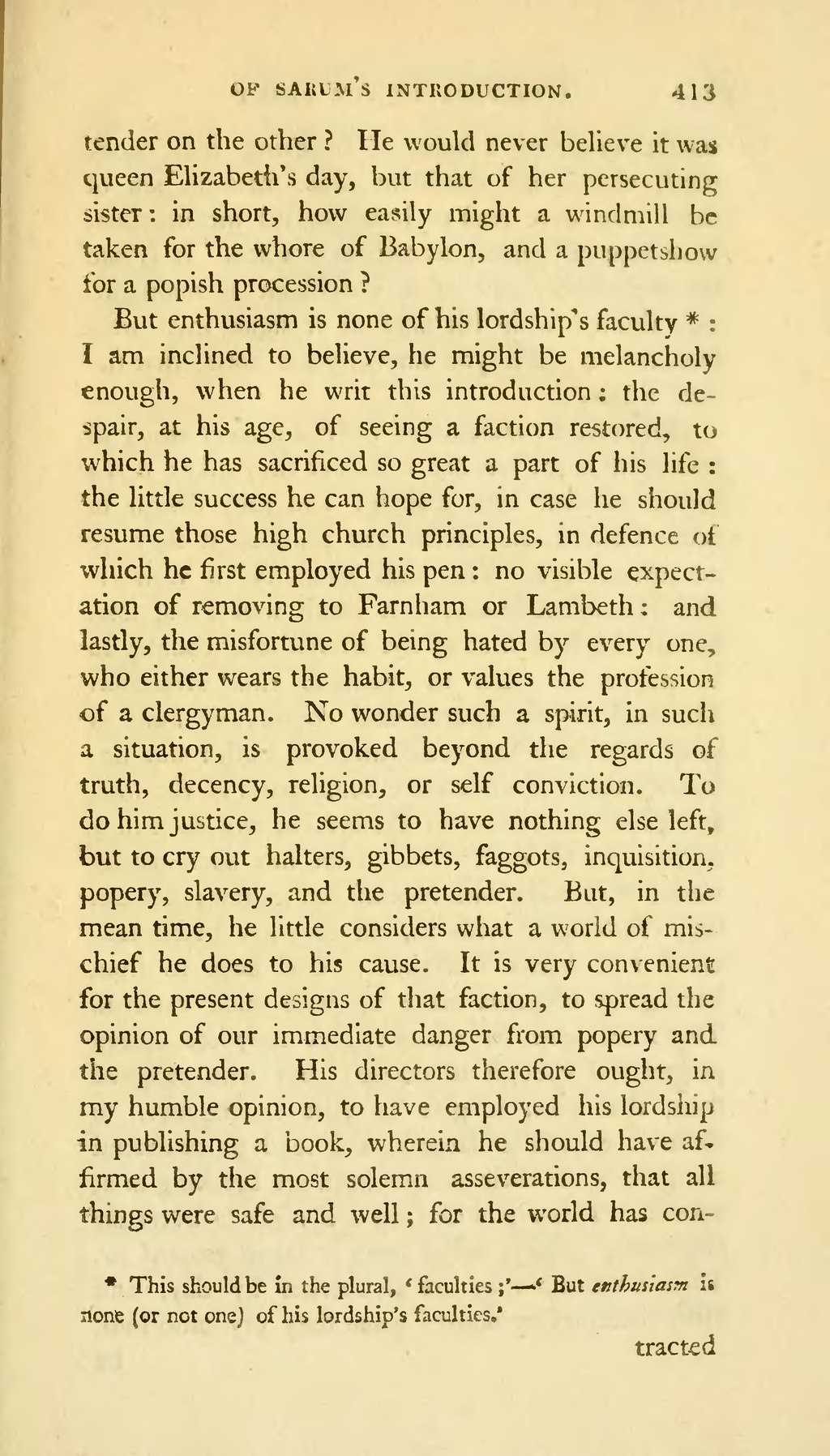tender on the other? He would never believe it was queen Elizabeth's day, but that of her persecuting sister: in short, how easily might a windmill be taken for the whore of Babylon, and a puppetshow for a popish procession?
But enthusiasm is none of his lordship's faculty[1]: I am inclined to believe, he might be melancholy enough, when he writ this introduction; the despair, at his age, of seeing a faction restored, to which he has sacrificed so great a part of his life: the little success he can hope for, in case he should resume those high church principles, in defence of which he first employed his pen: no visible expectation of removing to Farnham or Lambeth: and lastly, the misfortune of being hated by every one, who either wears the habit, or values the profession of a clergyman. No wonder such a spirit, in such a situation, is provoked beyond the regards of truth, decency, religion, or self conviction. To do him justice, he seems to have nothing else left, but to cry out halters, gibbets, faggots, inquisition, popery, slavery, and the pretender. But, in the mean time, he little considers what a world of mischief he does to his cause. It is very convenient for the present designs of that faction, to spread the opinion of our immediate danger from popery and the pretender. His directors therefore ought, in my humble opinion, to have employed his lordship in publishing a book, wherein he should have affirmed by the most solemn asseverations, that all things were safe and well; for the world has con-
- ↑ This should be in the plural, 'faculties;' 'But enthusiasm is none (or not one) of his lordship's faculties.'
tracted
